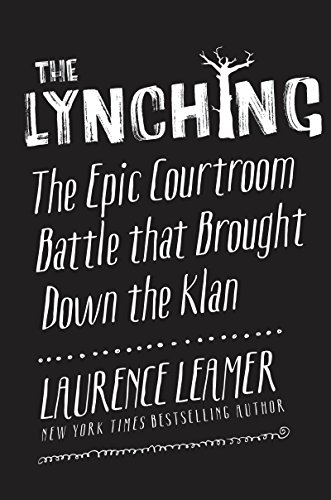Earlier this month, Oprah Winfrey reported on 60 Minutes on the Alabama memorial dedicated to thousands of African-American men, women and children lynched over a 70-year period following the Civil War. The project is being led by criminal defense attorney Bryan Stevenson who wants to shed light on a dark period in our past that most people would rather forget. These hangings were not isolated murders committed only by men in white hoods in the middle of the night. Often, they were public crimes, witnessed by thousands of people. Stevenson believes to heal racial divisions we must educate Americans of every color and creed. See the episode here.
The National Memorial for Peace and Justice, opening to the public on April 26, 2018, will become the nation’s first memorial dedicated to the legacy of enslaved black people, those terrorized by lynching, African Americans humiliated by racial segregation and Jim Crow, and people of color burdened with contemporary presumptions of guilt and police violence. Read the report, Lynching in America: Confronting the Legacy of Racial Terror, which documents more than 4400 lynchings of black people in the United States between 1877 and 1950.
 The Brooklyn Law School Library has in its collection a related title, The Lynching: The Epic Courtroom Battle That Brought Down the Klan by Laurence Leamer (Call No. HV6465.A2 L43 2016). It is the powerful story of a brutal race-based killing in 1981 and the dramatic two trials during which the United Klans of America, the largest and most dangerous Klan organization in America, was exposed for the evil it represented. Leamer tells a gripping story of figures such as legendary civil rights lawyer Morris Dees, Alabama governor George Wallace, and Klan Imperial Wizard Robert Shelton and describes the Klan’s lingering effect on race relations in America today.
The Brooklyn Law School Library has in its collection a related title, The Lynching: The Epic Courtroom Battle That Brought Down the Klan by Laurence Leamer (Call No. HV6465.A2 L43 2016). It is the powerful story of a brutal race-based killing in 1981 and the dramatic two trials during which the United Klans of America, the largest and most dangerous Klan organization in America, was exposed for the evil it represented. Leamer tells a gripping story of figures such as legendary civil rights lawyer Morris Dees, Alabama governor George Wallace, and Klan Imperial Wizard Robert Shelton and describes the Klan’s lingering effect on race relations in America today.
The story begins in March 1981, when Henry Hays and James Knowles, members of Klavern 900 of the UKA, picked up nineteen-year-old Michael Donald on the streets of Mobile, Alabama. They were seeking to retaliate after a largely black jury failed to convict a black man accused of murdering a white policeman. Hays and Knowles beat Donald, cut his throat, and left his body hanging from a tree branch in a racially mixed residential neighborhood. Arrested, charged, and convicted, Hays was sentenced to death, the first time in more than half a century that the state of Alabama had given that penalty to a white man for killing a black man.
Morris Dees, co-founder of the Southern Poverty Law Center, saw the case as an opportunity to file a lawsuit against the UKA. His colleagues told him that his lawsuit was impossible to win. Nevertheless, on behalf of Michael’s grieving mother, Mrs. Beulah Donald, Dees filed a first-of-its-kind civil suit and charged the Klan organization and its leaders with conspiracy. He proceeded to put the Klan leaders on trial, which produced some of the most audacious testimony of any civil rights trial as well as a stunning and precedent-setting verdict. Dees destroyed the UKA and created a weapon that the SPLC used time and again against other racist organizations. The Lynching is a suspenseful true story that takes us into the heart of darkness, but finally shows that Michael Donald and other civil rights martyrs did not die in vain.
